Bluesky thinking
The latest conservative psy-op
Kitchen politics
Let’s start as far away as possible from Bluesky, with some 4chan greentext:
Transcript of the screengrab:
i can’t prove it but i think much of the west’s current political moment is downstream of this phenomenon
Before internet
>i want to fuck toasters
>dont be a fucking retard
>grow up
After internet
>I want to fuck a toaster
>find a community with 1000+ members about people wanting to fuck toasters
>fuck up your life
Like many words that escape the troll dungeons of 4chan into normiespace, these ones are as cutting as they’re crude and surreal. They offer no more evidence for their claim than a single absurd imaginary example, but everyone reading about this imaginary online toaster fetish community would believe it existed if a newspaper reported one in the real world; and everyone, regardless of their politics, recognises the phenomenon: People with psychiatric disorders go online to seek validation of their pathological behaviour from others with similar psychiatric disorders—for example, in pro-ana groups. Other people with psychiatric disorders go online for validation of their fake physiological disorders from other people with real physiological disorders—“Munchausen by Internet”.
In both cases, people tell themselves damaging untruths that are questioned by—or that even disgust—other people in the real world; so they look for reassurance online. Sometimes, they find that reassurance by lying about their own lies to truthtellers; but, more often, they find affirmation for their fantasies by nodding along with other fantasists.
Their logic: If your neighbours don’t agree with your view of reality, you don’t need a reality check; you need penpals who are as deluded as you are. If your real-world peers think starving yourself close to death is crazy, maybe it’s time to check out of the real world and into a part of cyberspace where starvation equals status?
Jonestown blues
For anyone with low-status political views, like, for example, believing that transwomen are biological men, pre-Elon-Musk Twitter1 was a hostile environment. Its members and moderators were overwhelmingly self-described “progressives”2. Worse, they were eager to suppress any dissent from their own tribal positions—on gender ideology or on Jews, on Net Zero or ZeroCOVID, on “Islamophobia” or Black Lives Matter. If you had any significant audience on Twitter back then, you knew that, if you deviated from those positions on those issues, you risked being reported to the site’s moderators, who might delete your tweets or suspend your account.
Right now, this person is a fugitive from the Canadian police. Back in the 2010s, multiple users—including feminist author Meghan Murphy, conservative free-speech advocate Lindsay Shepherd, and Irish comedy writer Graham Linehan—were banned from Twitter for calling Yaniv “he”. This “misgendering” was possibly motivated by Yaniv’s suing multiple beauty spas (in vain) for refusing to wax a living penis while it was attached to the plaintiff.
Even if (especially if?) you were even more famous than the three Twitter users I cite above—perhaps you had millions of followers—your committing even the tiniest offence against this enforced consensus was a crime for which you had to atone3 in public, lest the online mob came for you in the real world.
Here’s the Huffington Post, in March 2018, reporting on the fall of the first domino in one of the most infamous cascades of controversy on that platform:
J.K. Rowling has denied intentionally ‘liking’ a transphobic tweet.
The ‘Harry Potter’ author came under fire from fans after they spotted she had liked a post containing a slur against trans women, referring to them as “men in dresses”.
The offending tweet read: “I was shouted at by men at my first Labour Party meeting aged 18 because I asked them to remove a page 3 calendar. I’ve been told to toughen up, be louder, stronger, independent. I’ve often not felt supported. Men in dresses get brocialist solidarity I never had. That’s misogyny!”
While the tweet no longer appear in Rowling’s likes, the fact she had liked it originally was captured by Twitter users and circulated.
No matter how high Rowling’s status in material public life, she was as exposed to attack on social media as the rest of us—not even for anything she had written or said, but merely for momentarily attending to forbidden content.
It’s not paranoia if they’re out to get you
Thanks to the subsequent publication of Twitter corporate internal messaging and source code, we also know now what was only suspected then: that Twitter’s management indulged in politically motivated censorship4, to the extent that even its non-human-supervised algorithms were weighted against heresy.
Despite my then being a low-real-life-status holder of low-online-status opinions myself, I still loved the platform. Trying to express heretical views under a theocracy is a supreme refiner of arguments and test of one’s evidence for them, a temperer of logical and moral mettle. Every morning, you walk into a cult camp run by the enemy, full of complacent cranks to mock. Of course, if you live under such a micro-theocracy, you are yourself at risk of developing either paranoia or a superiority complex, or both. But, to mix religious and martial metaphors, if you can avoid falling into those traps, low-level disruption behind enemy lines is elite combat training on the battlefield of ideas.
But, then, the great disruptor, Elon Musk, bought out the global coffee house and kicked over its tables5. For a while, he did everything he could to revive early-years-of-the-Internet anarchy. Twitter users howled. Advertisers fled (or they were petitioned to leave by outraged users). Musk discarded both employees and code. Whatever you thought of everything else he did, his pissing off his subordinates on a platform engineered for gossip was reputational recklessness.
It wasn’t only advertisers who fled. Refugee users from the new regime sought another platform that offered similar features. Indeed, at the same time as Musk sought to turn Twitter back to the anarchy of the original Internet message boards, those refugees went looking for, and tried to create, something that was like censored-Twitter, only more so.
Threads has huge on-paper mass-market numbers—thanks mostly to aggressive promotion by its owners, Meta. That company owns both Facebook and Instagram, and it pushed and pushes those platforms’ millions of users towards Threads. But, over the course of the last three years, Bluesky seems to have become the sanctuary state for the elites of Twitter’s ancien regime: academics, celebrities, influencers, journalists, NGOs, and politicians.
In November 2024, The Guardian’s 70 separate Twitter/X accounts collectively flounced to Bluesky. The paper’s editorial said:
“This is something we have been considering for a while given the often disturbing content promoted or found on the platform, including far-right conspiracy theories and racism,” it said.
“The US presidential election campaign served only to underline what we have considered for a long time: that X is a toxic media platform and that its owner, Elon Musk, has been able to use its influence to shape political discourse.”
Imagine using Twitter “to shape political discourse”!
In December it claimed that
A mass departure from Elon Musk’s X has led to the site losing about 2.7 million active Apple and Android users in the US in two months, with its rival social media platform Bluesky gaining nearly 2.5 million over the same period.
Twitter/X has of the order of 600 million active users a month, so Bluesky’s base is still a tiny fraction of X’s. But even that bucket-from-a-lake has been leaking continuously since the Guardian crowed about it:
Worse for Bluesky’s champions than the small and declining popularity of their platform of choice is the effect their using it has on their own beliefs and behaviour, an effect that’s magnified by the departure of the less-committed. The last occupants of the cult compound are always the true believers.
Blueskyers are almost certainly more political and more active on social media. They’re probably also younger, richer, and more academically qualified on average than users of rival platforms. Their disgust at X’s new, aggressive openness to dissent from their inferiors has driven them to build ivory towers worthy of their lofty view of themselves. In their tiny city state, they can say anything that their peers will let them without fear of challenge.
As Musk hobbled Twitter’s blocking features, exiles over on Bluesky built vast subscription lists of The Disapproved, using the individual and collective blocking tools plumbed into its core. Over There, it is trivially easy to hand the curation of your social media experience to what people Over Here (on Twitter) would call “The Woke Mob”, so that you need never see an “Islamophobic” or “transphobic” word again on your timeline. Here’s a fan of the platform, raving about how completely and rapidly wrongthinkers can be excluded by rightthinkers [my emphasis on my favourite part]:
When you block someone on Bluesky, it doesn’t just keep them from seeing you and vice versa. It removes any interactions they have had with you. It’s a powerful moderation tool that really helps protect users from harassment. Blocking a user prevents all interaction and hides the user from the client experience. Blocked accounts will not be able to like, reply, mention, or follow you. Their posts, replies, and profile in search will also be hidden from you. The function has been affectionately nicknamed “The Nuclear Block” for its effectiveness in stopping trolls/harassment.
Reporting an account that is out of line can also be incredibly effective. Oftentimes when users will share that they have encountered a harassing or spam account, the account is removed before I even get a chance to report it.
Bluesky, like old-school Twitter, is still a place where you can be banned by the admins for “misgendering” someone:

And—of course!—even as they punish their enemies’ thoughtcrimes more aggressively, Blueskyers’ own behaviour towards their designated targets becomes more vicious:
I could have filled this entire page with examples of the comedy of purity that Bluesky has become: its homicidal hatred of mouthy-but-moderate Jesse Singal, the unhinged response of its users to its administrators’ attempts to prevent the invasion of the site by “Palestinian” scammers, and any number of routine scolds:
“Don’t use AI-generated images to make your point; use copyrighted ones, like me.”
“Debate is genocide”:
“Have you got a licence for that birthday party pizza?”
“I can’t believe you’re still friends with your ex-!”
Safe space or echo chamber or both?
Amongst more thoughtful progressives, the unfolding of Bluesky’s culture triggered a meta-debate: Is the creation of such online “safe spaces” A Good Thing for The Cause?
This article by Megan McArdle was a concise factual summary of what I agree with her is the doom loop that Bluesky represents and one of the most prominent pieces arguing that, in the US at least, secession has been bad news for the pseudo-Left:
For roughly a decade, Twitter hosted what is lightheartedly called the “national conversation” on issues of the day, particularly social justice and public health. Twitter never had that many users, compared with Instagram or Facebook. But it had a big group of influential users — politicians, policymakers, journalists and academics, all of whom were engaged in a 24/7 conversation about politics and current events.
That was a boon to progressives, who wielded outsize influence on the platform because they were early adopters who outnumbered the conservatives. They were also better organized and better networked, and had the sympathy of Twitter’s professional-class employees, who proved increasingly susceptible to liberals’ demands for tighter moderation policies on things such as using male pronouns to refer to a transgender woman.
Moderation suppressed conservative users and stories that hurt the left — most notoriously, the story about Hunter Biden’s laptop, which Twitter throttled as “disinformation” in the run-up to the 2020 election. Of course, progressive Twitter mobs also policed the discourse themselves, securing high-profile firings that made many people afraid to cross them.
Thus, that national conversation ended up skewed toward liberal views, creating the illusion that their ideas were more popular than they actually were. That’s a major reason that institutions went all-in on diversity, equity and inclusion initiatives, and why the 2020 Democratic primary field moved so far to the left that Kamala Harris was still struggling to backtrack four years later. All that changed when Musk bought Twitter.
But, here, Josh Barro makes a case against—based on the, just-plausible, idea that it might be a good thing for the declining image of progressive politics in the wider public’s eyes that the words of progressivism’s noisier champions are getting much less of a hearing. Because mad6 people scare voters:
…[O]ne of the reasons Democrats didn’t realize it was a big mistake to make promises and statements that made them sound wacky was that they were constantly being yelled at on Twitter by people whose unpopular viewpoints they mistook for broad public opinion. The screamers won the battle but they lost the war: they pressured their own candidates into manufacturing attack ad fodder for Republicans, and as a result, Donald Trump is president again.
Correlation, doesn’t imply causation; but, right now, the McArdle position fits the data closer than the Barro position. The Labour Party in the UK and the Democratic Party in the US have responded to the striking unpopularity of their respective offerings by talking among themselves, and then concluding that the solution is to push even more unpopular policies and express even more unpopular views.
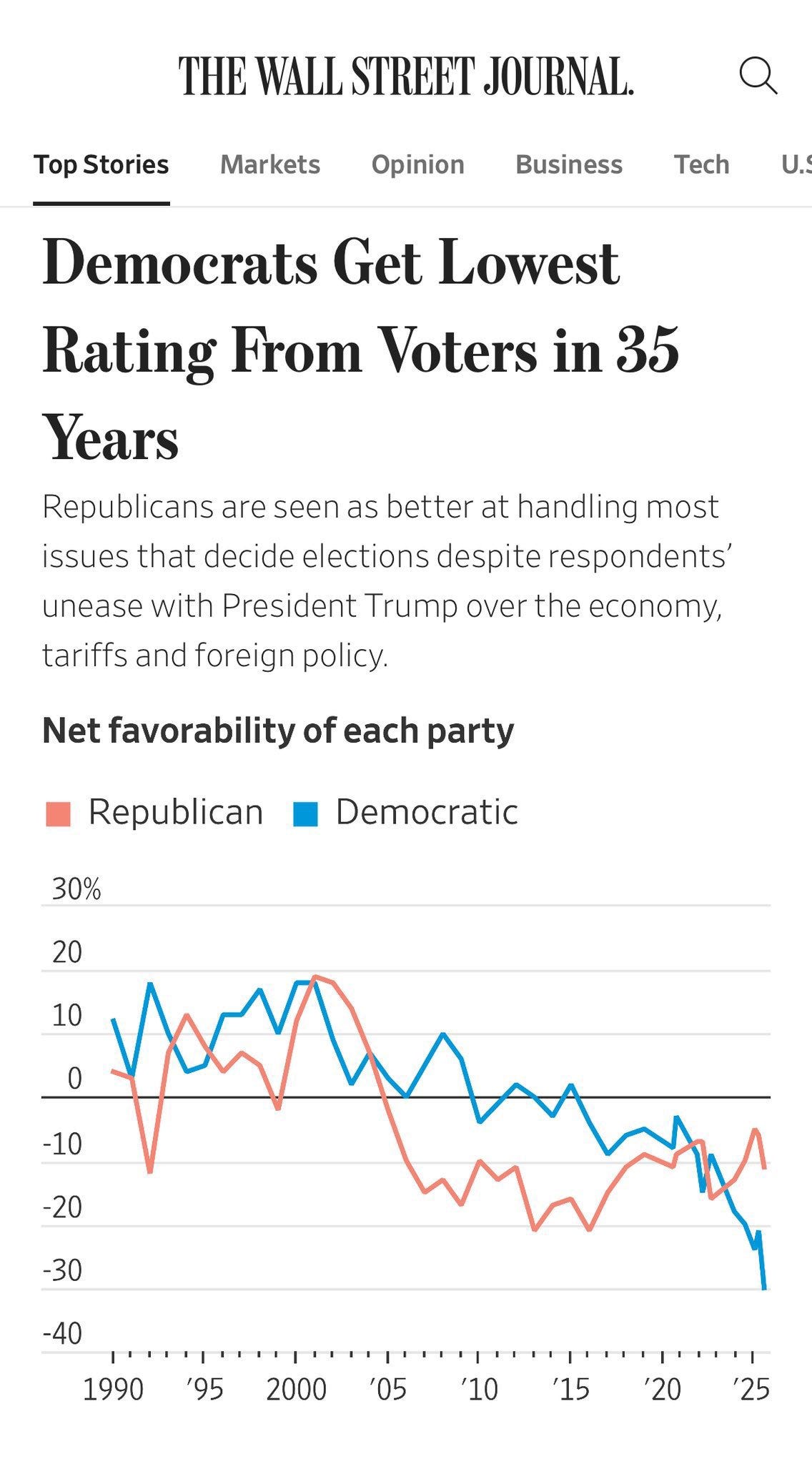

Before a bad idea can be beaten, it has to be dragged out into the public square
My own view? Bluesky and other highly policed online safe spaces are like extreme trans ideology: They’re exactly what you would want progressives to adopt if you were a conservative and wanted to destroy your enemies from within.
Communism lost the Cold War. Socialism is unpopular with voters. Left-liberalism—which I consider to be class-conscious, secular, scientific, internationalist, colour-blind, anti-hierarchical, intellectually rigorous, and committed to free expression—has been hollowed out and worn like a skin by “progressivism” and “wokeism” and Corbynite/Mamdanite crankism.
Because ordinary people, especially the working-class people the Left once relied upon, won’t vote long-term7 for this toxic cocktail of genderwoo, Islamism, pseudoscience, “reverse” racism, magic-money-tree economics, terror-worship, identity politics, credentialism, crankademia, and censorship, its best hope of influencing the real world is to infest public-sector and supranational institutions and the media and to embed itself in international rights agreements, outside of the reach of national democratic accountability.
Accountability depends not only on citizens’ being able to vote bad law down and to remove bad actors from office; it requires that citizens know that Bad Things are being done in their name. If you want to subvert a democracy that’s hostile to your beliefs, you need to protect those beliefs from public scrutiny.
A tidy example of this is the behaviour of the respondents in the infamous employment tribunal currently taking place in Scotland: Peggie v NHS Fife, where proceedings were delayed by the withholding of internal documents discussing her employer’s reasons for suspending nurse Sandie Peggie. Even before fuller disclosure, what we’d heard of internal communications involved in the decision to discipline Peggie was as surprising in its absurdity as its spite.
NHS Fife’s Equality And Human Rights Lead Officer, Isla Bumba, told the tribunal she could “hazard a guess I would be female” but “no one knows” their chromosomes or hormonal composition unless they have had formal testing. The boss of the individual respondent, Dr Upton, a consultant, admitted circulating an email that condemned Peggie before any formal investigation, and that this mailing was a “flagrant breach of confidentiality”.
If you are a small-C or big-C conservative, these are the kinds things you want your enemies to be saying out loud in front of dumbfounded voters.
You want the opposition’s Foreign Secretary to be telling his constituents that a man can have a cervix.
You want the opposition’s Home Secretary to be telling her constituents not to “get into rabbit-holes” of what a woman is8.
You want their candidate for Prime Minister to say that “trans women are women”—and, even better, once elected, to have to retreat from that position three years later in public because the Supreme Court forced him to.
To force a G7 leader to acknowledge reality as it is apparent to the overwhelming majority of his nation’s voters, it was necessary for campaigners to drag the simple and vital question “What Is A Woman?” out of NHS doctors’ messes and comprehensive school staff-rooms and internal HR memos, all the way up to the highest court in the country.
Perfectly, the original reason for this appeal to the Supreme Court was to get a ruling on the implementation of identity-based quotas for public appointments.
Could there be a more satisfying outcome for conservatives than to have two pseudopodia of The Blob—on one side, sex-identity-quota-pushers, and, on the other, NHS-employed advocates of biological men in biological women’s spaces—wrestle each other in open court and national media for months? Could any “progressive-on-progressive” fight better serve conservatives’ ends than one between a public appointments policy that ordinary people consider to be unfair and a view of medical sex that ordinary people consider to be batty?
In democracies, bad-but-widely-held political beliefs don’t die of natural causes—they rarely die at all!—but they can be defeated at elections and they can be made irrelevant to real life. As summertime visitors to Portugal might testify, laws against drink-driving have less effect on people driving drunk than public stigma against drink-driving does. For bad political beliefs to have political consequences, people have to appreciate their practical consequences. Bluesky is just one of many places where people who believe the way the world works is wrong in theory can protect their own politics from practice.
Media political commentators, talking to each other rather than to voters, reinforced each other’s belief that Westminster’s choice to have a showdown with Holyrood over “gender” self-identification would be a disaster for the UK Prime Minister, rather than, as transpired, downfall for the Scottish First Minister. When people in power believe absurd things, they can have absurd consequences. But it was only when voters saw photos of a biologically male rapist in a blonde wig on his way to a women’s prison that irrational ideas that had been seeping into Scottish public policy for years manifested themselves in a form sufficiently concrete and crazy that their most prominent champion had to go.
The electoral turning point for former Labour Party leader Jeremy Corbyn—the point at which handout-enjoyers tipped from a vague sense that Corbyn was a generous old weirdo (“Magic Grandpa”), to perceiving him as something more sinister—was when he responded to the poisoning of UK citizens in a provincial English market town by recommending that officials of the obvious sponsor of the chemical attacks, the Russian Federation, be invited round to investigate whether or not Russia really was to blame. It was only when Corbyn’s Stalinist-apologist head of comms broadcast Corbyn’s long-held true beliefs about Putin, an enemy of this state, that previously sympathetic voters saw Corbyn for what he was.
According to polling, while most voters may find their individual policies attractive, they don’t like contemporary “progressives” or their ideas as a whole; but, spiritually, progressives dominate the administrative and regulatory cathedrals of western democracies. Given this dominance, the two wisest things they can do to cement their place as the clerk-clerics of the new established church, are to stay silent and stay invisible. (That many progressive footsoldiers believe noisy, disruptive street activism is a winning strategy is one of the many reasons they keep losing.)
Any ecologist will tell you what happens to populations in isolated environments under limited selection pressure. It’s ironic given the fetishization of the word on Bluesky, but one main biological effect is a reduction in diversity. Another is the expression of previously hidden (recessive) harmful traits through inbreeding. When individuals from such pockets are exposed to the wider world, things often don’t work out well for them. Just ask the Christmas Island shrews.
The tiny blue Devil’s Hole pupfish is one of the most isolated and inbred macroscopic species known to humankind. It’s both adapted to an extreme environment and very delicate outside it.
Why does any of this matter?
Conservative Americans who scored high on the authoritarianism questionnaire had no problem saying “Yes, I am authoritarian.” But liberals were a different thing entirely. Not only were liberal authoritarians less likely than conservatives to accurately identify themselves as authoritarians (when they were, in fact, authoritarian), but there was actually a negative correlation between left-wing authoritarianism (the reality) and liberals’ willingness to identify as authoritarian (their own perception). That means that the more authoritarian liberals are, the less they believe they are authoritarian!
— Luke Conway, The Left Has an Authoritarian Problem (but Doesn’t Know It)
Here’s the overarching irony: I want genderwoo, Islamism, pseudoscience, “reverse” racism, magic-money-tree economics, terror-worship, identity politics, credentialism, crankademia, and censorship to find a deep hole to die in. I want the pushers of such ideas to keep talking to one other and not to people who might otherwise be seduced by their ideologies or who might otherwise help them to present them better to voters. But, unlike the Bluesky ultras, I also want healthy, open debate with people I disagree with, if only so that far better—but less superficially appealing—ideas can be refined. And I also want my political opponents’ ideas to be exposed to public scrutiny.
But it’s not just the ultras that matter. Many people considered moderates, and people I once at least respected for their rejection of some of the Left’s worst excesses, were radicalised by old-school censored-Twitter and have been pushed further by Bluesky. Some might not be Corbynites, but, like the Corbynites, they believe in a hostile media conspiracy against the Labour Party. Some might not be Stalinists but they want Elon Musk arrested for incitement. Some might not have been totalitarians, but they wanted children locked out of schools on shaky grounds, with terrible long-term consequences.
And terrible long-term consequences will result if, for example, the UK elects a Reform government with Nigel Farage as PM. The last time they went up against him, Remain campaigners turned inwards to their allies and called their enemies racists and tried to tell voters what they really thought and tried to stop the government from doing what voters had told them to do. We know how that ended: not only with a victory for Leave, but, eventually, after frustrating voters’ wishes, with a Boris Johnson landslide on a “Get Brexit Done” platform and a harder Brexit than if they had at least played by the rules that they themselves had written.
In the same way that I, as a soft-Brexiter, warned continuity Remainers that their dedication to blocking the result of the EU Referendum would be fatal to their cause, I’m warning today’s Centrists that hiding themselves away from voters in Leftist sinkholes and treating the views of the voters outside with contempt will give them exactly the kind of government they profess to be terrified of, a government that I believe would be a disaster for this country.
Being good requires that you draw lines to separate you from evil. US conservatives are currently having their own problem with this; but, generally, this comes more easily to those on the side of the political divide that respects Chesterton’s Fence and considers borders sacred than the side that venerates inclusion and has “No Enemies To The Left”.
There aren’t many people on Bluesky and their behaviour is weird, even among the WEIRD; but they include elected representatives, national media commentators, tech entrepreneurs, scientists, university professors, and senior public-sector employees. Even ones without official power often have disproportionate influence. Their political positions are skewed strongly to what passes for the Left now and their collective outlook affects the real world: what’s thought and taught and done.
Bluesky is a place where, instead of learning to be better advocates for their views in the face of mainstream criticism, elite progressives can go to frot each other to greater radicalism and thrill in ever-more-vicious purges of dissenters. It’s a place where camaraderie can go to curdle into crankery. It’s a place where even politicians who must have a professional interest in voters’ views can go to prepare for irrelevance. But—as the implementation of Brexit and the rise of Trump and Reform have shown—it’s those pesky earthbound voters who choose the kind of world that highfalutin Bluesky-dwellers have to flutter down to live in.
Conservatives didn’t have to banish progressives to this or to any other cult camp. Progressives banished themselves. Every step they take away from the public square is another step they take away from public office.
Now “X”, but I’m not going to call it that here and Elon can’t make me.
In 2019, when 22% of the US population used Twitter, 80% of all tweets from US adults came from users who “strongly disapproved” of Donald Trump.
Then, as now, apologising for heresy was futile. No apology is ever enough for the mob, but any apology is enough evidence of sin.
I deliberately chose to link to this BBC News article about the revelations because it’s a masterclass in trying to undermine inconvenient facts by wrapping them in speculative insinuations.
The Metaphor Police are now banging on my door with warrants in their hands, but I will never surrender!
In at least two senses of that word.
Except, perhaps, as a protest against conservative candidates.
That Cooper immediately pivoted from this question firstly to her own feelings about the launch of her book, and then to the question of violence against and rape of women was particularly revealing when she was later accused of blocking investigations into alleged child rapes and of having taken the side of the now-convicted attacker of a female police officer.




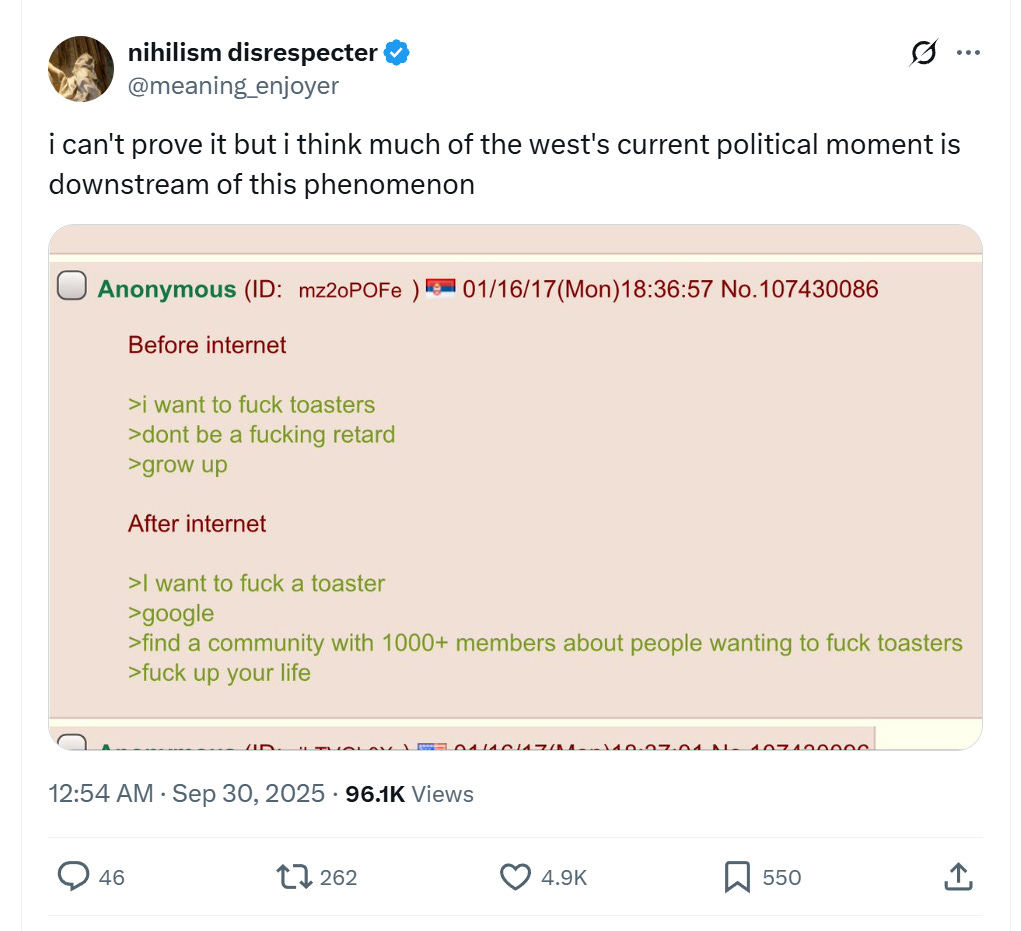
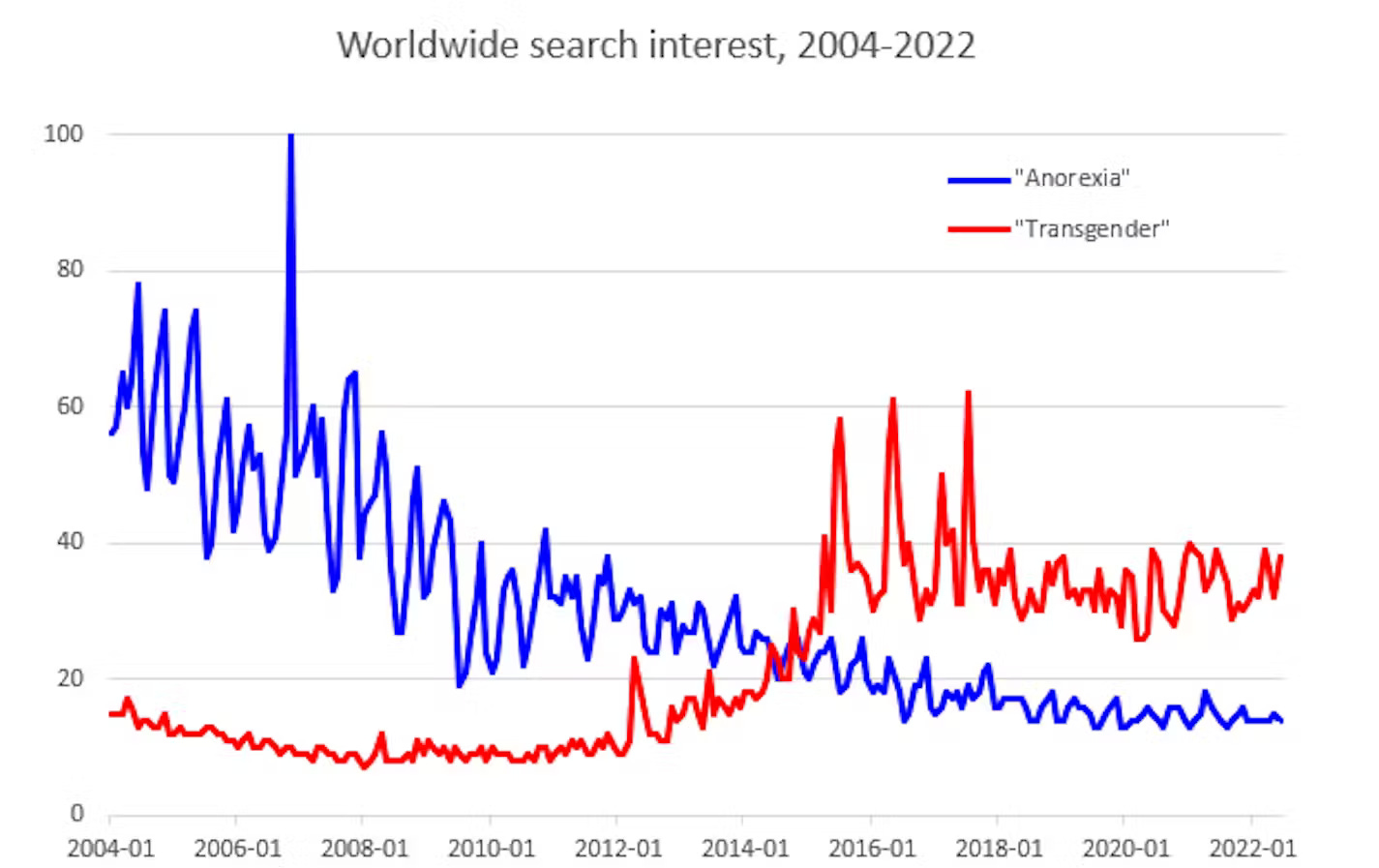





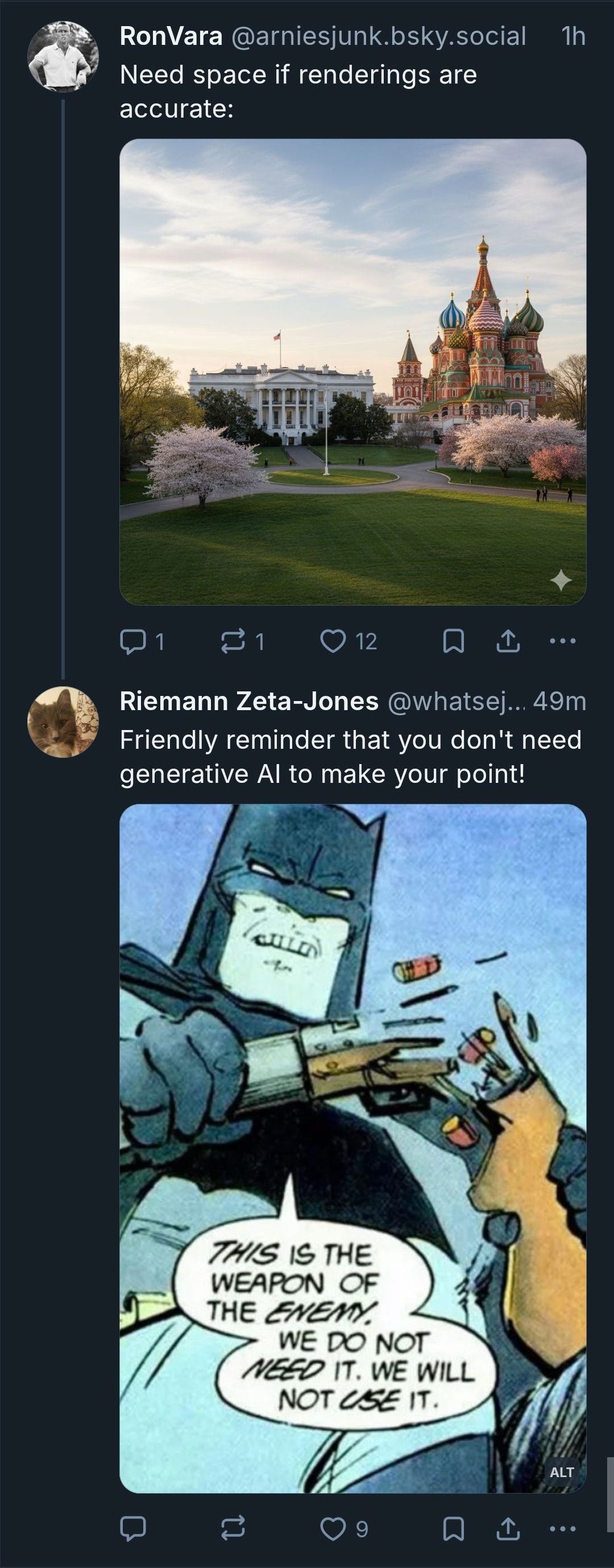
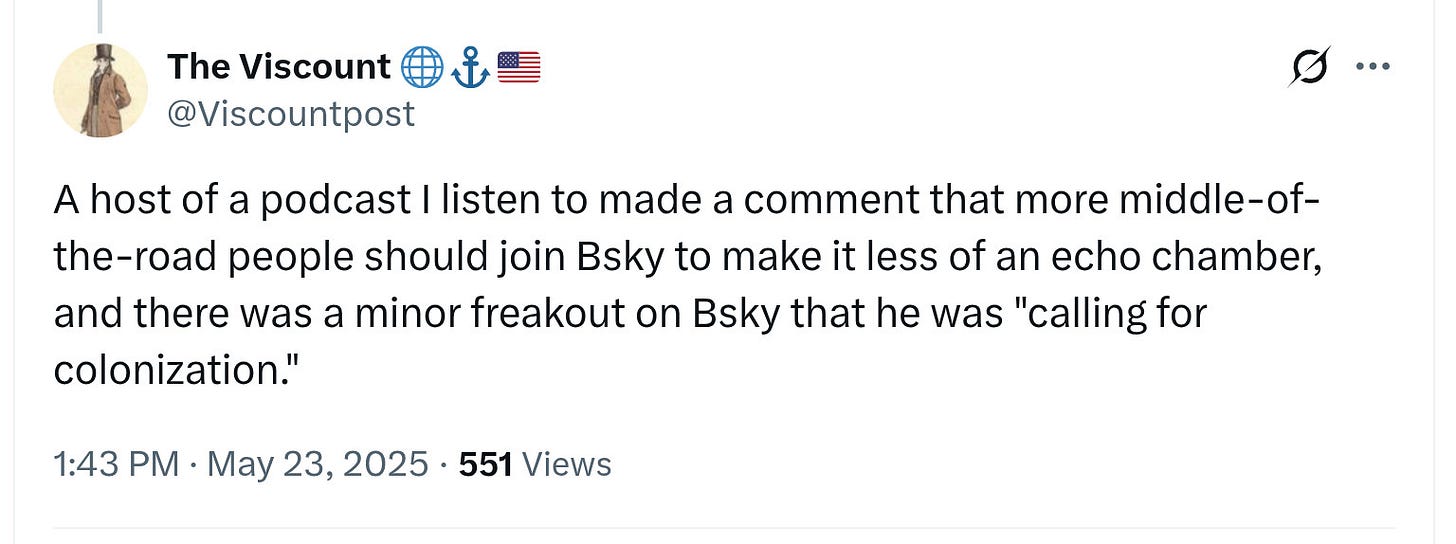
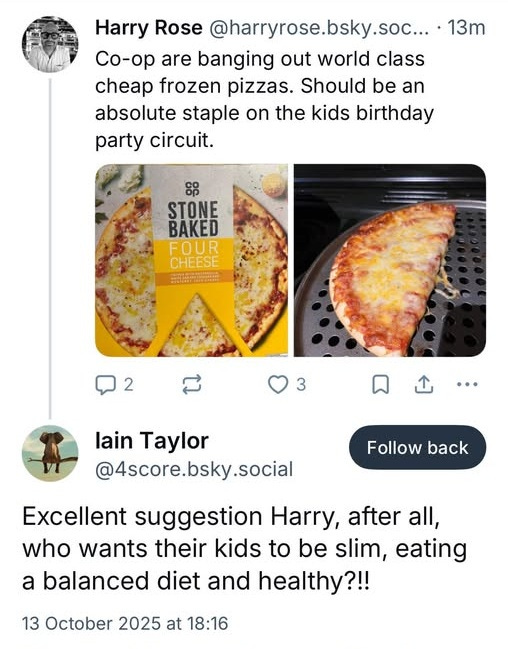
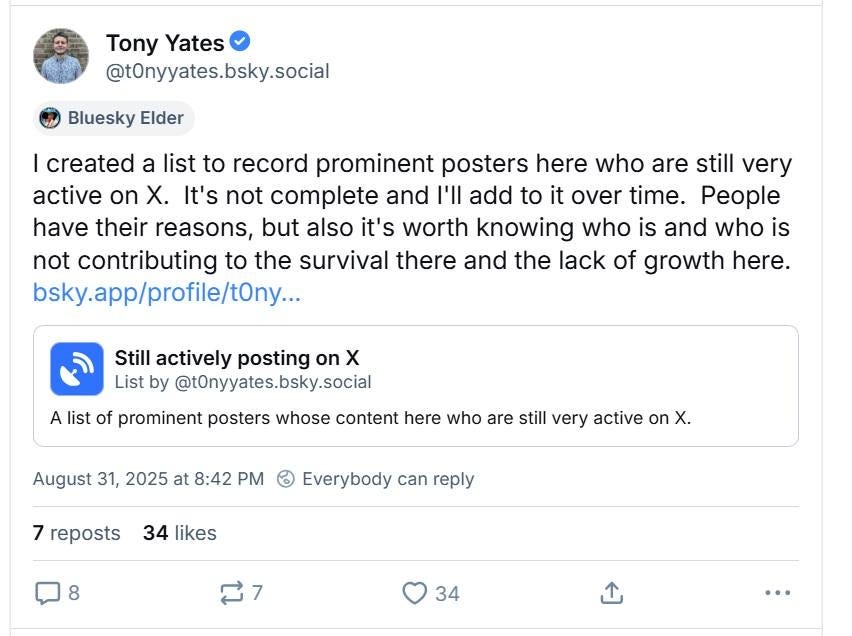
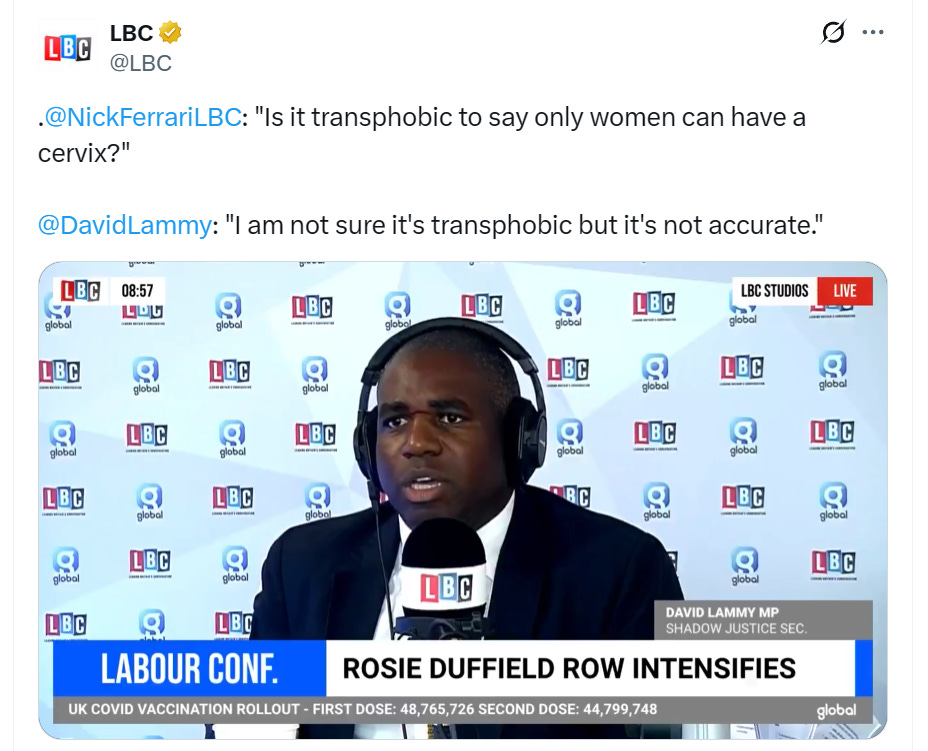


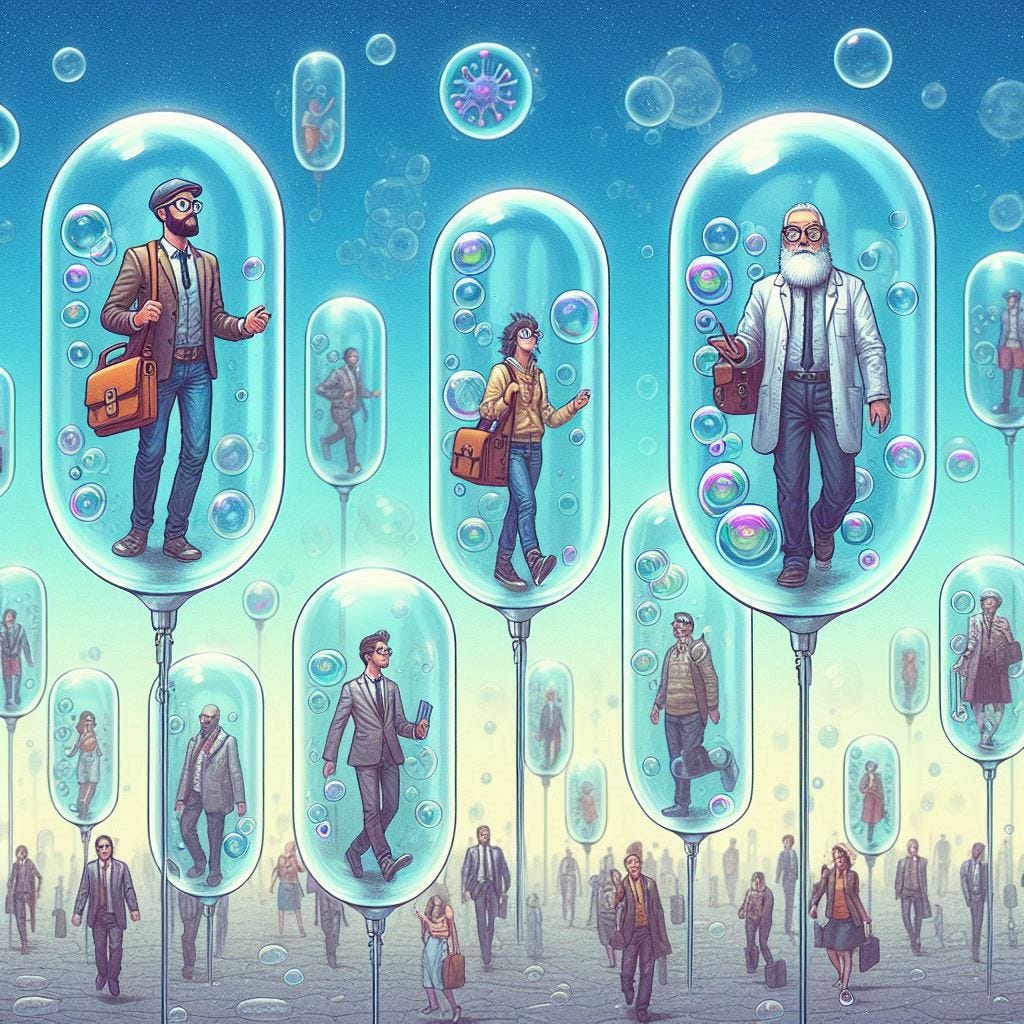

This is excellent, and far more concise than my essay.
https://robfrancis.substack.com/p/the-great-liberal-flounce
I don't recognise what you describe in UK Bluesky - although I am blocked by over 2 million users now so maybe I'm just insulated from the nutbags.
Occasionally US Bluesky leaks and you're bluntly reminded exactly how fucking stupid they are but UK time is actually pretty much ok